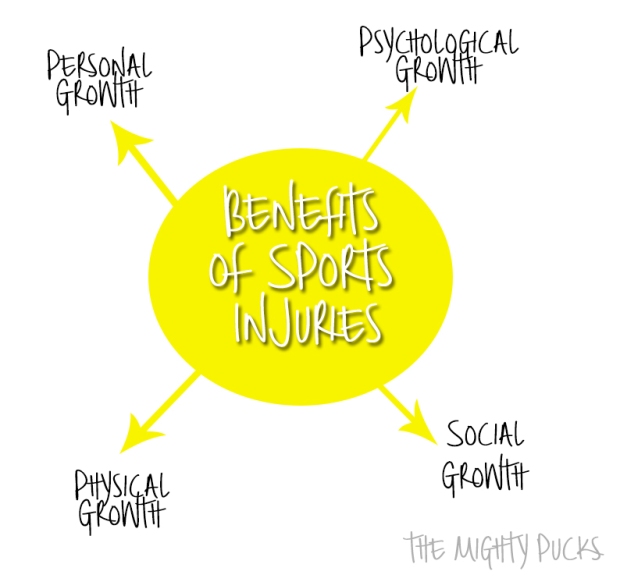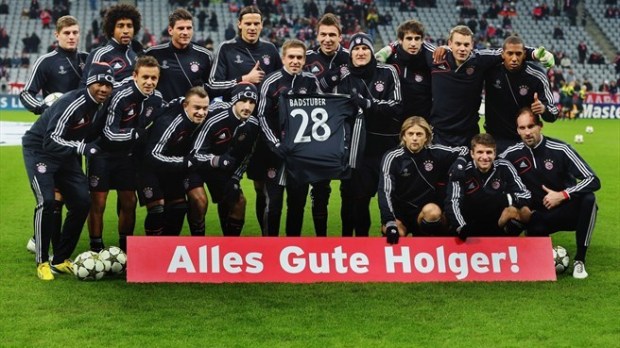Before we begin, I want to clarify that benefits can arise following an injury rather than attempting to injure yourself because it will yield some benefits. (Does that make sense? I’m not sure). On the whole sports injuries are more likely to be a source of stress (a post will follow later). There are three general phases to an injury: Onset, rehab, and return to sport. Each one has its own distinct issues: The onset can be a very emotional situation e.g. if the ACL is torn and you’re out for the season; rehabilitation is not a straight line, setbacks can be frustrating, and rehab can be long and dull; return to sport is often fraught with anxiety about fitness or re-injury. However, research is beginning to examine possible positive effects of sports injuries. Wadey, Clarke, Podlog, and McCullough (2013) investigated a coach’s perceptions of their athlete following an injury and four areas of growth emerged; physical, psychological, social, and personal.

Personal growth – This is really to do with your own beliefs and thoughts and is possibly as a result of the other three forms of growth. Following a sports injury, you have plenty of time to think about the sport and yourself – your response to the injury, your abilities – and these may change as the rehabilitation process unfolds.
Social – social networks can become hugely important in the instance of an injury. If anybody has had crutches, you’ll know how frustrating it is to do simple things like carry a cup of tea into the living room. With more severe injuries, like Denna Laing’s recent one, where you’re bed bound for a time then you’ll rely on that social network for help and comfort. When people reflect on that, that they have these people to look to for support, it helps them to realise that they have a great network; this doesn’t have to just be family and friends, it can be the club too. However, it’s important to recognise that some people may not have strong social support, so this may hit home that the athlete is quite isolated.
Psychological – The long layoff from sport provides the opportunity to develop psychological skills, particularly if the athlete is unable to engage in physical exercises. I worked with an golfer recovering from double hip surgery who wanted to improve imagery skills, which we used to enhance the rehabilitation exercises, as well for him to apply once back on the golf course. Mental toughness/hardiness and goal setting are good areas to improve during rehab and can encourage the process e.g. completing the rehab exercises morning and night for a week and recording this in a diary along with some reflective practice.
Physical – Come back stronger. It’s a phrase often associated with injuries, and with good physiotherapy and rehabilitation it can be done. Physiotherapy seeks to strengthen the injured area and often the whole athlete too; muscles don’t work in isolation. For a torn ACL, you don’t just focus on the knee, attention is paid to the hamstring and quadriceps muscles of both legs, or you could examine the gait to see if that can be improved to prevent injuries. A rugby player has dislocated their shoulder and can’t use it? Great, we can focus on strengthening the leg muscles.
Why does it matter? Injuries are often a source of worry, so if trainers can put a positive spin on it then it may enhance rehabilitation outcomes and motive the athlete.
